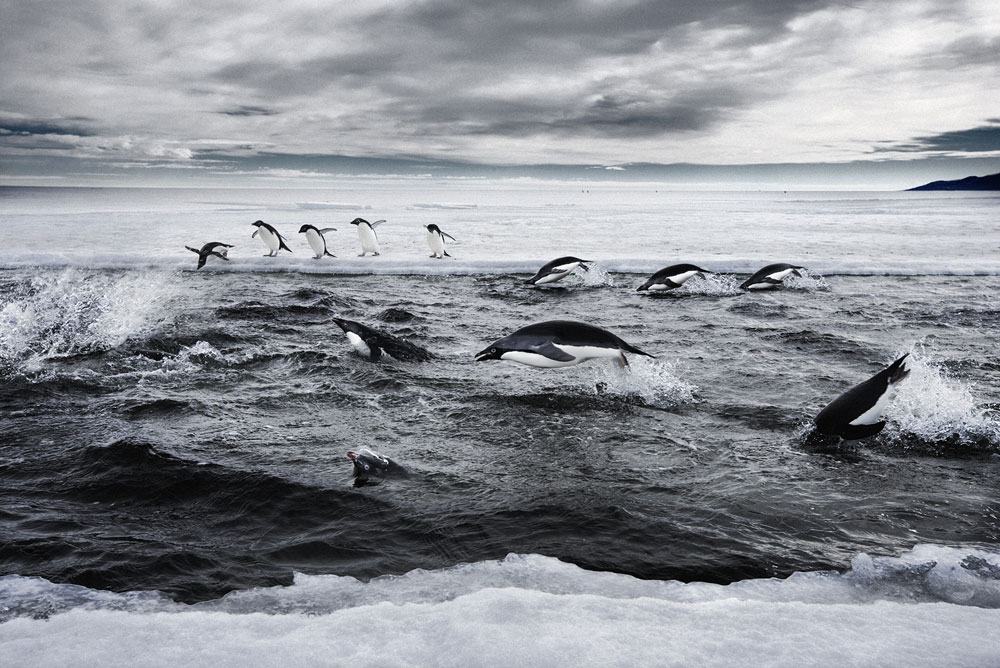
How Climate Change May Help Penguin Colony

Get the world’s most fascinating discoveries delivered straight to your inbox.
You are now subscribed
Your newsletter sign-up was successful
Want to add more newsletters?

Delivered Daily
Daily Newsletter
Sign up for the latest discoveries, groundbreaking research and fascinating breakthroughs that impact you and the wider world direct to your inbox.

Once a week
Life's Little Mysteries
Feed your curiosity with an exclusive mystery every week, solved with science and delivered direct to your inbox before it's seen anywhere else.

Once a week
How It Works
Sign up to our free science & technology newsletter for your weekly fix of fascinating articles, quick quizzes, amazing images, and more

Delivered daily
Space.com Newsletter
Breaking space news, the latest updates on rocket launches, skywatching events and more!

Once a month
Watch This Space
Sign up to our monthly entertainment newsletter to keep up with all our coverage of the latest sci-fi and space movies, tv shows, games and books.

Once a week
Night Sky This Week
Discover this week's must-see night sky events, moon phases, and stunning astrophotos. Sign up for our skywatching newsletter and explore the universe with us!
Join the club
Get full access to premium articles, exclusive features and a growing list of member rewards.
Antarctic warming has been a boon for one large colony of Adélie penguins, a finding that's surprising scientists.
A recent study found that over the last 60 years, a colony of the birds on Beaufort Island in the Ross Sea, south of New Zealand, increased by 84 percent, from 35,000 breeding pairs to 64,000 breeding pairs. This increase has come as glaciers have retreated from the island, leaving more bare, snow-free ground, where the penguins make their nests, according to the study, published this week in the journal PLOS ONE.
For food, the penguins still depend on sea ice, from which they forage. As the extent of sea ice has declined in Antarctica, it brings bad news for other colonies of the aquatic birds.
The finding is surprising since other colonies of Adélie penguins have declined in population, and many continue to do so. The scientists suspect that the increase in population on Beaufort Island is primarily due to the increase in available nesting habitat; since 1980, the amount of flat, bare ground has increased by 20 percent, according to a news release describing the study. There may be other reasons for the increase in population, such as prey availability, though this is uncertain, according to the study.
"This research raises new questions about how Antarctic species are impacted by a changing environment," said Michelle LaRue, study co-author and researcher at the University of Minnesota, in the statement. "This paper encourages all of us to take a second look at what we're seeing and find out if this type of habitat expansion is happening elsewhere to other populations of Adélie penguins or other species."
The study estimates penguin populations and habitat size using high-resolution aerial photographs taken as far back as 1958, and, more recently, satellite imagery.
The penguins are smaller than the more well-known Emperor penguins, standing about 18 to 30 inches (46 to 75 centimeters) tall and weighing about 10 to 12 pounds (4.5 to 5.4 kilograms). They are listed as near-threatened by the International Union for Conservation of Nature because they are "expected to undergo a moderately rapid population decline over the next three generations owing to the effects of projected climate change," according to a 2012 study cited by the IUCN.
Get the world’s most fascinating discoveries delivered straight to your inbox.
Email Douglas Main or follow him @Douglas_Main. Follow us @OAPlanet, Facebook or Google+. Original article on LiveScience's OurAmazingPlanet.
 Live Science Plus
Live Science Plus











